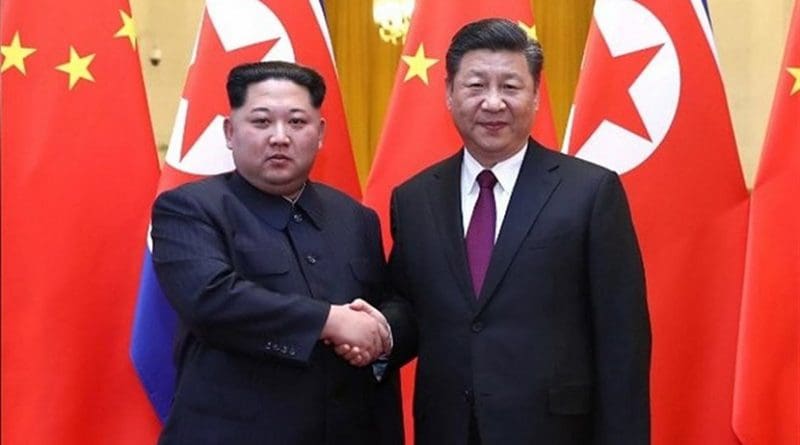China’s Stake In Trump-Kim Summit – Analysis
By Observer Research Foundation
By Keshav Kelkar
No other summit in recent history has perhaps witnessed as much head-spinning melodrama as the upcoming meeting between US President Donald Trump and North Korean leader Kim Jong-Un. While the bulk of the commentary on the upcoming summit on 12 June has focused on the implications the meeting will have on the future of US-North Korea relations, there is one overlooked aspect that merits further analysis: what are the stakes for China?
Although Trump and Kim will be taking centre stage in Singapore, the summit will be closely watched by Beijing, not least because it is historic but because the outcomes could have significant implications for China. Beijing will look to achieve the following objectives:
First, the summit, or the days leading up to it, provides Chinese President Xi Jinping with an opportunity to display Chinese leadership over a diplomatic process that has implications for the future of the Korean peninsula. By pre-emptively inviting Kim for an “unofficial visit” to Beijing, Xi not only became the first foreign leader to meet the reclusive North Korean leader, but also used the opportunity to showcase to international and domestic audiences that China was not sitting idly by as a major diplomatic initiative was unfolding in its sphere of influence. Allowing the US and North Korea to broker any deal without Beijing’s sanction would not only be a diplomatic failure for China, but a huge loss of face for Xi himself.
Moreover, should the summit ultimately fail to produce any concrete outcomes, it would present Xi with a golden opportunity to swoop in and broker a Chinese-led de-nuclearisation talks, which would be good optics for China and deal a symbolic blow to US leadership in the region.
Second, while the initial announcement for a Trump-Kim meeting caught many by surprise, Beijing moved swiftly to ensure that any meeting between Trump and Kim did not jeopardise Chinese security interests on the peninsula. The Korean Peninsula has long been regarded by Chinese strategic planners as the “lips that guard the teeth” – in other words, a strategic buffer state between China and US forces stationed in South Korea and Japan. Therefore, any outcome that could result in a unified Korea aligned with the United States, or further destabilise the North Korean regime is antithetical to Beijing’s interests. The nightmare scenario for Beijing would be to have to deal with armed conflict followed by regime collapse right at its doorstep. As Isaac Stone Fish and Robert E. Kelly point out, “Beijing fears a North Korean collapse far more than Washington does. In such an event, or in the case of a serious destabilisation, Beijing would potentially have to handle thousands, or even millions, of refugees fleeing across the porous border between the two nations. The ruling Chinese Communist Party is ill-equipped to deal with a refugee crisis: it lacks a resettlement policy and has not dealt with a mass influx of refugees since the 1970s.” Conversely, any arrangement that would de-escalate tensions on the peninsula and result in a reduction of US forces is welcome news for Beijing.
Lastly, and more importantly, Beijing will keep a close eye on any deal that would see an easing of sanctions on the North Korean regime, providing China an opportunity to expand economic cooperation with North Korea. Beijing believes that lifting economic sanctions will encourage Pyongang to implement Chinese-style economic reforms, allowing China to reap the fruits of economic cooperation and help stabilise the North Korean regime – a proverbial win-win situation. Graham Allison echoes this argument in a recent op-ed, where he aptly notes “Kim Jong Un has no plans for North Korea adopting American-style democracy. His paramount objective is to remain, like his father and grandfather, Supreme Leader for life. But he could find a form of governance closer to that of Singapore, or more likely China, appealing.”
As Trump gears up to meet the North Korean leader, Washington needs to bear in mind Beijing’s interests in the region for the talks to proceed further, or risk being surprised once again. Kim may be trying to re-orient relations to lessen North Korea’s dependence on China, but it is Xi who has the ultimate veto on any future re-alignment in the region. The last time the US underestimated China’s resolve on the Korean peninsula, it cost the United States. Trump and his advisors would do well to heed the lessons from history.
The author is a Junior Fellow at ORF Delhi

